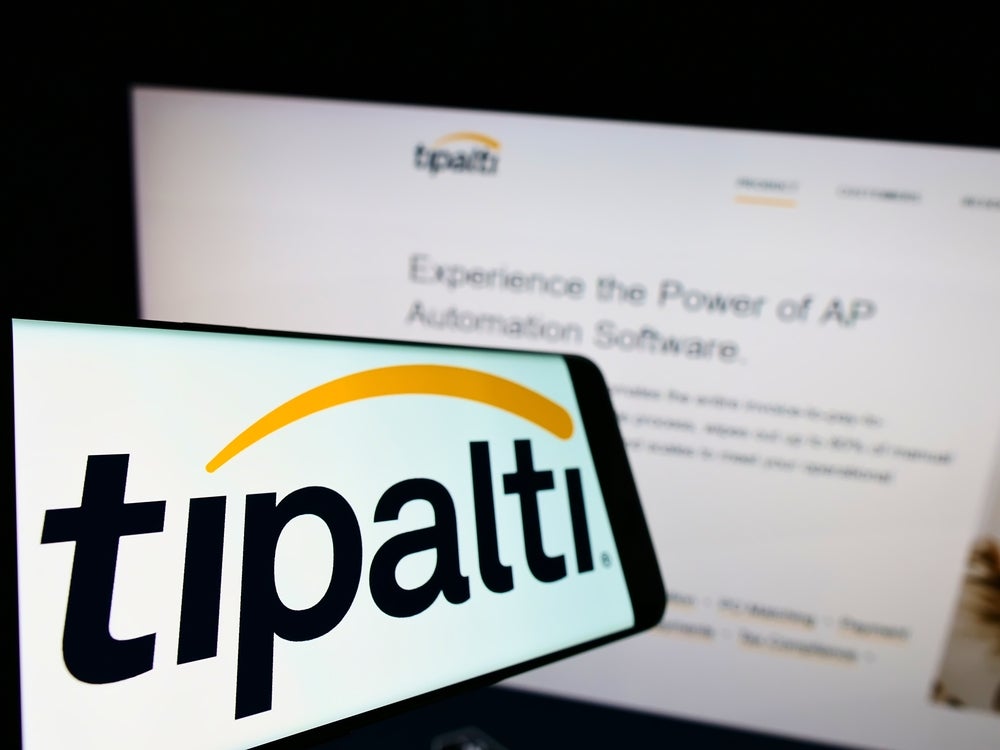
Tipalti currently serves over 5,000 companies via AI-driven solutions to automate finance operations. These include accounts payable, employee expenses, global pay-outs, procurement, supplier management, and tax compliance.
What should excite Tipalti’s backers is the sheer scale of the addressable market of prospects not yet using AI-powered finance software.

Access deeper industry intelligence
Experience unmatched clarity with a single platform that combines unique data, AI, and human expertise.
“There are a huge number of companies, especially those of a more traditional nature, that have not even scratched the surface of automation and what it can do for their businesses,” says Darren Upson.
Douglas Blakey speaks with Darren Upson, VP Europe, Tipalti
The Tipalti value proposition
Tipalti is a fully automated, cloud-based platform that simplifies the most complex finance workflows, helping its clients manage end-to-end payables across multiple entities, currencies, and countries—with built-in compliance. And its seamless ERP integrations gives complete visibility and control.
So, it eliminates manual work and speeds up the entire payables process, automating everything from invoice approval to global payments and reconciles data seamlessly.

US Tariffs are shifting - will you react or anticipate?
Don’t let policy changes catch you off guard. Stay proactive with real-time data and expert analysis.
By GlobalDataThat summary is hardly over-techy and should be understandable to even the most basic of business leaders.
The Tipalti proposition is boosted by the backing of JPMorgan Chase, which is about as good as it gets if you had the widest possible choice of potential financial backers.
Backing from JPMorgan and Hercules Capital
Back in 2023, Tipalti raised $150m in growth financing from JPMorgan and Hercules Capital. At the time, it brought total funding to more than $550m and valued the firm at over $8bn. JPMorgan is also one of the major banks Tipalti uses to route its billions of dollars’ worth of supplier payments on behalf of its customers.
“We work in the fintech space as an automation platform for accounts payable and also mass payments as well. We are both a software company and a financial services business. We execute payments for our businesses and we handle the whole accounts payable process from start to finish, basically stripping out all of the manual, redundant processes associated with accounts payable.
“As that is the most time-consuming part of finance, we’re trying to help organisations, especially those fast-growing businesses, to actually put their people to better use and leverage technology to really do that manual, repetitive work more efficiently, faster and to be more scalable as well.”
He says that a typical client firm will be high-growth, pre-IPO outfits that have already embraced automation. They will be firms that understand how automation enables them to be more agile as an organisation.
“The big challenge that exists now is individuals’ understanding the art of the possible. There’s a lot of people that think that they’ve already automated everything they can do. But there’s always more and with AI tools and the technology that exists out there, there’s so many more areas across an organisation that you can automate to create more efficiency, especially when businesses are looking to try and retain and attract talent as well. It’s about, how do they make sure that the people that are coming into the workforce now are doing roles that are actually fulfilling and that they enjoy.”
UK remains the number 1 destination outside N America
In the run up to the UK’s Labour government first budget, there was much negative press coverage forecasting doom and gloom if taxes such as capital gains tax were raised. In the end, the rate of increase was not as steep as the most pessimistic forecasts but CGT did rise from 20% to 24% for higher rate taxpayers. And given the track record over history of past Labour governments, further tax rises are more likely than any tax cuts. Upson says that the UK is still the number one destination out of North America for start-ups. “We’ve got such a hotbed of talent, and we’ve got a large banking infrastructure in place as well. So [tax changes] do not mean that the lights are going to go out overnight. But I think that there have to be more incentives to actually attract and support individuals that are looking to build the next big thing.”







